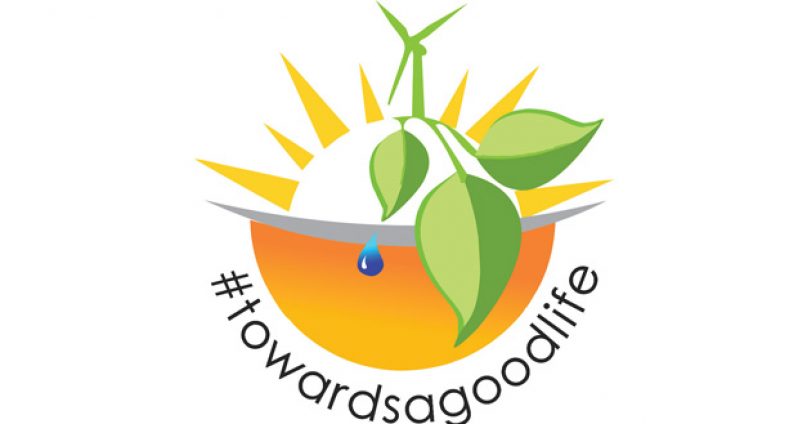By Gavin Bovell
The consciousness about energy in mainstream society appears understated with scarce conversations, perhaps the most neglected area of implementation lies in the promotion of public awareness on energy matters involving our livelihood. Discussions must be forged, facilitated, organized and deliberately structured for “top down” as well as “bottom up” exchanges. Language and literature must be sensitive to the targets to avoid exclusion and disinterest. Even as the country forges ahead with plans for a Green Economy, its success would substantially be improved by the rapid advancement in clean energy development and energy efficiency practices.
Importance of Energy
Energy is important. It’s a commodity we cannot afford to go without since we all rely on it daily to enrich our lives, increase productivity, make us safer and improve our health. According to Peter Voser (Chief Executive Officer, Royal Dutch Shell, Netherlands) “energy is the oxygen of the economy and the life-blood of growth”. In the context of Guyana and our daily life and existence, I find that energy is equivalent to the blood that runs through our veins.
Economic and Environmental Costs
According to Guyana Energy Agency Strategic Plan Document 2014 – 2018, Guyana, in 2012, imported 4.9 million barrels at a cost of one hundred and twenty billion Guyana dollars (USD $600 million), a 13.42% increase when compared to 2011. This represents an average of twenty four percent (24%) of our Gross Domestic Product (GDP). The gravity of these numbers are self-explanatory and must be recognized in terms of its scale and significance.
All things being equal, we can expect this upward trend to continue as in the case of most developing countries. Combustion of fossil based energy fuels are widely linked to environmental degradation – global warming and pollution. It is certain that we are experiencing unusual weather patterns, floods, droughts, temperature changes, rising sea levels, all of which are consistent with the explanation of the “greenhouse gas” effect.
Accepting the scientific consensus that climate change is occurring, it is imperative that the pace of our mitigation and adaptation measures be hasten in order to curb the mounting environmental cost.
Energy Security and Supply
With the passing of time our thirst for energy has become evident. Guaranteeing our energy security should no longer be treated as merely an option but must be at the forefront of our national priorities. Historically, the protection of energy resources and supply has always been contentious, vicious and costly, lest we forget the “Linden Martyrs” or even the aggressive objection by our neighbors, Suriname and Venezuela to the presence of exploratory hardware in Guyana’s waters. These events, all have the aroma of energy at its core.
Ironically, it was from Venezuela that we once depended on for our energy supply through the Petro Caribe energy deal. Being careful not to criticize this initiative, it must however force us to expedite our transition from fossil fuel based energy dependence to indigenous sources of energy as a guarantee of energy security.
Baseline and Opportunity
To get a better perspective of our national energy habits (reported), we examine the major energy use statistics against total imports for the same period 2012; electricity generation – 33%; transportation – 38% and all other – 29%.
It is without prejudice that reference must be made to the recent media reports which suggest that at least 50% of Guyana’s total fuel imports goes unaccounted. By any stretch of the imagination this is a significant amount and by the least of any concerns may misrepresent the stated energy use position. Because of the little energy efficiency practices and low renewable energy uptake, the baseline figures are inherently representative of significant opportunities for energy savings and wider economic, environmental and social benefits nationwide.
Renewable Energy Resources and Barriers
Guyana possesses abundant supplies of renewable energy resources. The availability of wind, hydro, solar and biomass (inclusive of wood waste) provide excellent sources of indigenous energy that can be harnessed for domestic use. However, we must appreciate that the process of harnessing these renewable resources can be extremely challenging, coupled with a wide range of barriers that hinders a progressive uptake.
These barriers are broad based and include issues such as financing, technology transfer, technical skillsets, data management, policy and legal frameworks. Removing or reducing these barriers can be complex and will require a deliberate and strategic institutional structure championed by laser focused management.
Towards a resolve
The resolution of these issues will require a common approach, a singular platform to coordinate activities and facilitate “buy in” from all stakeholders. The state agency must take the lead role, facilitating the compilation of extensive baseline reports and assessments; establish meaningful targets and determine and execute strategies to transform intentions into actions.
The Guyana Energy Agency (GEA) is theoretically and practically placed to be transformational in this regard. It must urgently reposition to adopt the lead role in promoting and stimulating greater utilization of renewable energy sources and the uptake of energy efficient applications at all levels by targeting electricity generation and transmission and transportation sectors. The next article will examine some relationships between energy and a green economy.
Gavin Bovell is a consultant in the areas of Energy, Environment, Green Development, Urban Transport and Land Use Planning. Gavin interned at the Energy Department of the Caribbean Community Secretariat (CARICOM) and worked as an Energy Consultant with the Inter-American Development Bank. Bovell has written several papers on energy in Guyana and has consulted on several energy and environmental projects, including waste to energy, analyzed utility scale energy proposals and contributed to writings for policy considerations. His strengths include policy development, strategic planning, climate change mitigation and adaptation strategies, project management, and business management and development. Comments can be sent to: towardsagoodlife@gmail.com



.jpg)








